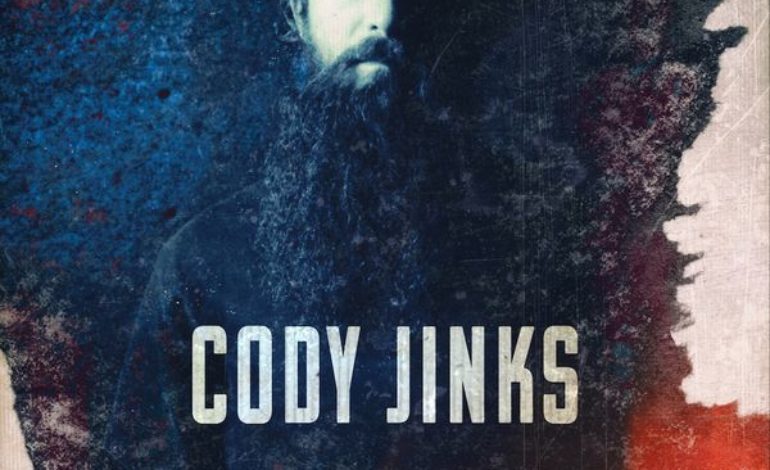

Jinks delivers with another masterful tribute to southern rock
Independent Fort-Worth country-rocker Cody Jinks is back with another outlaw album. Mercy, a 12-track project filled with heartache and steeled guitars, defines the modern genre of outlaw country. With few peers in this realm (Stapleton, Childers, Wall), Jinks is held to a high standard, and Mercy meets it.
“I’m a walkin’ talkin’ livin’ breathin’ country song,” rasps Jinks in the first track, “All It Cost Me Was Everything.” A perfect way to begin an album, it starts with a steadiness that Cody Jinks is constantly utilizing. Twisted guitars whine behind his classic drum beat that sustains this steadiness before launching into the chorus, where he finds himself content in his loneliness.
“I’m gonna hurt you as much as I can,” angrily croons Jinks in “Hurt You.” Strangely enough, in a song about hurting an ex-lover, Jinks wrote this one with his wife, Rebecca. With a drum section that gives a punk feel to the song, the anger in the lyrics is carried through the instrumentation as well. Wailing steel guitars contrast the punk and bring in that country sound to create a feeling that many know so well—a resentment stemming from tragedy.
The title track, “Mercy,” is what could be described as back-porch-sitting-lemonade-sipping-country music. Written with Alabamian singer-songwriter Adam Hood, this track contains melodies that cater to every audience. Speaking on the hard work days that mark his life, he says that love sometimes doesn’t cut it, but “mercy is something that I always need.” Another great example of finding the subtleties of emotion, this song is what a title track should be.
“Like a Hurricane” sounds rough. The quality isn’t as sharp as others on the record; fewer instruments are utilized, and the entire track has an improvisational/live feel to it. This is not a bad thing. It speaks to the authenticity that Jinks brings to the table. Just like him and just like the song, the quality is slightly rough. Just as Eric Church did with “Mr. Misunderstood,” when an artist uses a live-recorded version of a song for their album, it creates a feeling that cannot be overlooked as the tempo and energy shift with the song. The song itself is a southern rock masterpiece about perseverance. In addition, with its new emergence on country radio, it steers the ship for authentic country music to be, once again, the face of the genre.
Coming in immediately with hard snares and muted strums, “How It Works” sounds like a train pushing forward. The metaphor of a train seems to work; Jinks’s music inherently comes with a paced steadiness and a hint of loneliness that stems from the subtle and surprising minor notes Jinks throws in. This track sits right before one that hits the other side of the energy spectrum, which Jinks also resides comfortably in. “Nobody Knows How to Read” features just his voice and two guitars. Perhaps the most socially aware track on the album, Jinks sings, “Agendas are sold to the masses, a train wreck, a car crash is all that they show. As soon as we’re cut into classes, they shake up the bottle and watch it explodе.” For so long, politics and country music were mutually exclusive ideas that in recent years, fortunately, have confluenced more and more.
“Roll,” though the second-least streamed track on the project so far, is absolutely worth a listen. Working again with singer-songwriter Ward Davis, as he did on his hit “I’m Not The Devil,” this track is steady beauty. “I know life ain’t easy, man, believe me, I lose more than I win,” comforts Jinks behind melodic piano riffs. There is no reason this track should be overlooked—it is one of Jinks’s best songs in a long time.
The album concludes with an explicit, more-abstract style for Jinks. Instead of his traditional southern rock, on “When Whiskey Calls the Shots,” Jinks enters the Western swing/Texas blues world. Working with a multitude of guitars, it gives it a swingy, slightly swanky energy to it, delivering the exact feeling that would be needed in a song about letting “whiskey call the shots.”
Overall, Mercy is an impressive album. Cody Jinks has a difficult time releasing bad music, plain and simple. Though his sound hasn’t changed much over the years, for him and his audience, that is what is wanted—a steadiness—and wow, can Jinks pull that off. With highlights including “Hurt You,” “Like a Hurricane” and “Roll,” Jinks masterfully dissects emotion and aligns it with what the music says. All in all, and completely unsurprisingly, Cody Jinks has found a way to put forth another incredible project in Mercy.
